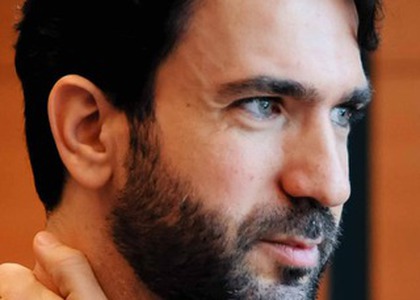> [Archived] Interviews

Interview with conductor Lubnan Baalbaki
Conductor Lubnan Baalbaki will be leading the National Radio Orchestra during the concert that is due on Friday, May 5th, on the Radio Hall stage. On this occasion, the Lebanese artist with Romanian citizenship, who studied music in Romania as well,has offered us more details.
How do you describe having to work with the musicians of the National Radio Orchestra and how did it feel to receive the invitation to lead this ensemble?
I believe this is already the sixth or the seventh time that I'm going. It is always a delight, especially since we have already become friends. I've recorded together with the orchestra and I've collaborated with many of its members in other countries. It is an excellent orchestra, able to bring forth certain interpretations and leaving space for working onparticularities, the result being felt immediately.
You will be conducting the symphonic suite, Scheherazadeby Rimski Korsakov. What led you to choose this well-known work and what are the reference attributes of this opus, in your opinion?
I have always wanted to present this work here, at Radio. It is a special one, first and foremost, for the public, for the conductor and the orchestra. It is a very musical work. I believe that by coming forth with an Oriental culture alongside the culture that I've collected throughout Europe, I have plenty to tell through this work. I interpret it with an understanding at the level of melody, atmosphere, phrasing and story. I believe that Friday will be a beautiful evening, alongside the ambience from One Thousand and One Nights itself.
How do you perceive the juxtaposition of this symphonic suite with the Spanish Symphony by Eduard Lalo, which you are going to present before the public in the first part of the evening, and what could function as a bridge between these two works?
First of all, they are two unique works when it comes to the musical form. There is a bridge between these two, especially since Spain has been influenced by Arab and Oriental culture for many years. Second of all, there is the presence of the violin. This is a solo violin work with an orchestra, and the other one, Scheherazade, has a protagonist presenting a violin solo, being a concert maestro. Moreover, there are many orchestrations and instrumentations which are similar to one another.
How do you expect the collaboration with violinist Gabriel Croitoru to enfold?
I met him the other day and it was with great pleasure. He is very friendly, and, of course, he is a great musician. I had seen him before at concerts, but never met him face to face and I can't wait to have a beautiful collaboration together.
Translated by Adelina-Maria Mănăilescu,
University of Bucharest, Faculty of Foreign Languages and Literatures, MTTLC, year I
Corrected by Silvia Petrescu














